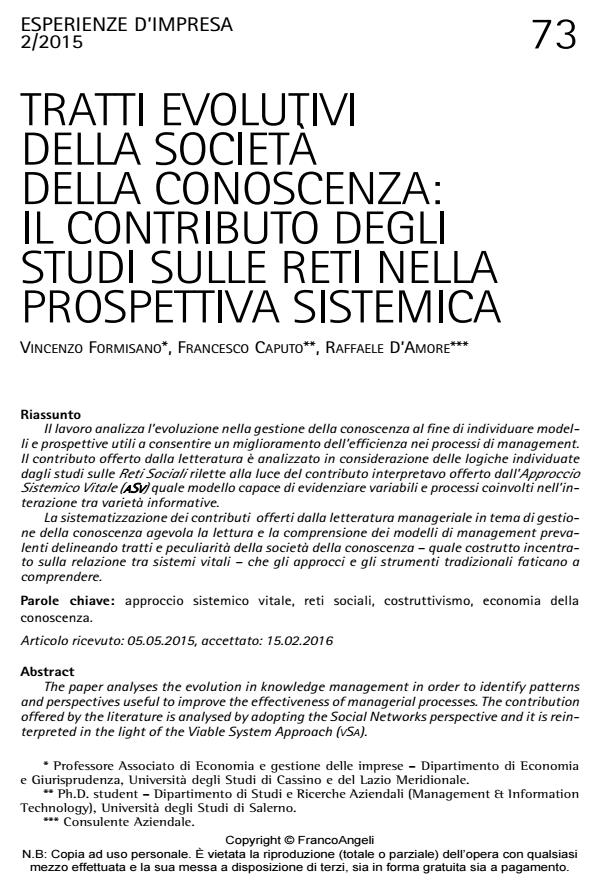Tratti evolutivi della società della conoscenza: il contributo degli studi sulle reti nella prospettiva sistemica
Journal title ESPERIENZE D'IMPRESA
Author/s Vincenzo Formisano, Francesco Caputo, Raffaele D’amore
Publishing Year 2017 Issue 2015/2
Language Italian Pages 22 P. 73-94 File size 235 KB
DOI 10.3280/EI2015-002003
DOI is like a bar code for intellectual property: to have more infomation
click here
Below, you can see the article first page
If you want to buy this article in PDF format, you can do it, following the instructions to buy download credits

FrancoAngeli is member of Publishers International Linking Association, Inc (PILA), a not-for-profit association which run the CrossRef service enabling links to and from online scholarly content.
The paper analyses the evolution in knowledge management in order to identify patterns and perspectives useful to improve the effectiveness of managerial processes. The contribution offered by the literature is analysed by adopting the Social Networks perspective and it is reinterpreted in the light of the Viable System Approach (VSA). The proposed literature review about the topic of knowledge management facilitates the reading and the understanding of dominant managerial models outlining traits and characteristics of the knowledge society - as construct based on the relationship among viable systems - that traditional approaches are no able to explain.
Keywords: Viable systems approach, social networks, constructivism, knowledge economy
Vincenzo Formisano, Francesco Caputo, Raffaele D’amore, Tratti evolutivi della società della conoscenza: il contributo degli studi sulle reti nella prospettiva sistemica in "ESPERIENZE D'IMPRESA" 2/2015, pp 73-94, DOI: 10.3280/EI2015-002003